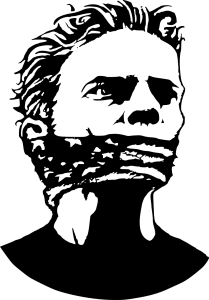“To me, your writer’s voice is the expression of YOU on the page.”
— Rachelle Gardner
A few years ago, I found my writer’s voice while I wrote a short story. At that time, I couldn’t define what writer’s voice is. Now I’ve done research, and made a list of writers’ definitions.
On my list, every time another writer agreed with one aspect, I added a checkmark after the aspect. Now, I think I know what writer’s voice really is.
None of the multiple-checked aspects won.
But reading them all pushed me to my aha moment. Rachel Gardner’s blog post, What is Writer’s Voice?, particularly struck me. Here are quotes from Gardner’s blog that pushed my bingo button:
“Your voice is all about honesty. It’s the unfettered, non-derivative, unique, conglomeration of your thoughts, feelings, passions, dreams, beliefs, fears and attitudes, coming through in every word you write.”
“How, then, are you failing to express that on the page?”
“I think it’s because most of us spend our lives presenting to the world anything and everything except who we really are.”
Ding, ding, ding! I get it! I get it!
1. What came to mind while reading Gardner’s blog post is a statement someone said about Alzheimer’s disease. People dealing with the disease slowly lose the filter they have that takes what’s in their minds, what’s in their very being, and “cleans” it up before they speak or act.
Call it a social filter. Some people with Alzheimer’s disease become blustery or mean when they lose their social filter. Others become serene or friendly, after years of being private or reserved.
2. Because I still have my social filter, what goes on inside me is often different than what I say or do. Except now, I’ve split off a second filter for writing. The mesh in my writer’s filter has larger holes than my social filter. As Gardner alluded to, I’m more honest when I write now.
3. In my non-writing life, the only person I employ a larger-holed social filter for is my husband. I love to make him laugh and banter with him. I can be funny, sassy, and occasionally, snarky.
4. Now, I understand why I’ve had to rewrite two heroines since I found my writer’s voice. I was having too much fun allowing sassier and snarkier thoughts to invade them. Heroines were coming across unlikeable, reflecting poor inner characters.
Conversely, perseverance, loyalty, honesty, humor, and spiritual seeking streamed to my heroines through my writer’s filter.
But, I needed to tone down the sass and get rid of snarky attitudes.
5. Another writer helped me manage one unlikeable character. She suggested my heroine often say what I had her thinking. Better yet, for the sake of my heroine’s inner character, I had my heroine think thoughts that she would say. Now I understand why that worked. Of course, my character would put up her social filter and convert snarky thoughts into sass. So, I used the milder sass for her thoughts.
After research, I know what writer’s voice really is. Click to tweet.
What’s something you’ve identified in your writer’s voice, something you’ve allowed through the mesh of your writer’s filter?










Good information.